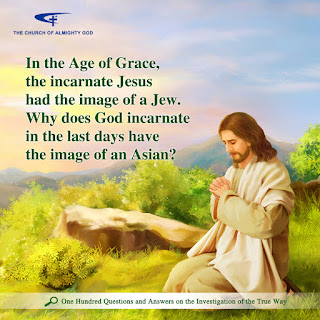The answer from God’s word:

“Not everything in the
Bible is a record of the words personally spoken by
God. The Bible simply documents the previous two stages of
God’s work, of which one part is a record of the foretellings of the prophets, and one part is the experiences and knowledge written by people used by God throughout the ages. Human
experiences are tainted with human opinions and knowledge, which is unavoidable. In many of the books of the Bible are human conceptions, human biases, and human absurd interpretations. Of course, most of the words are the result of the enlightenment and illumination of the
Holy Spirit, and they are correct interpretations—yet it still cannot be said that they are entirely accurate expressions of the
truth. Their views on certain things are nothing more than the knowledge of personal experience, or the enlightenment of the Holy Spirit. The foretellings of the prophets were personally instructed by God: The prophecies of Isaiah, Daniel, Ezra, Jeremiah, and Ezekiel came from the direct instruction of the Holy Spirit, these people were seers, they had received the Spirit of prophecy, they were all prophets of the Old Testament. During
the Age of Law these people, who had received the inspirations of Jehovah, spoke many prophecies, which were directly instructed by Jehovah. …
… Today, people believe the Bible is God, and that God is the Bible. So, too, do they believe that all the words of the Bible were the only words God spoke, and that they were all said by God. Those who believe in God even think that although all of the sixty-six books of the Old and New Testament were written by people, they were all given by inspiration of God, and a record of the utterances of the Holy Spirit. This is the erroneous interpretation of people, and it does not completely accord with the facts. In fact, apart from the books of prophecy, most of the Old Testament is historical record. Some of the epistles of the New Testament come from people’s experiences, and some come from the enlightenment of the Holy Spirit; the Pauline epistles, for example, arose from the work of a man, they were all the result of the Holy Spirit’s enlightenment, and they were written for the churches, were words of exhortation and encouragement for the brothers and sisters of the churches. They were not words spoken by the Holy Spirit—Paul could not speak on behalf of the Holy Spirit, and neither was he a prophet, much less did he see visions. His epistles were written for the churches of Ephesus, Philadelphia, Galatia, and other churches. And thus, the Pauline epistles of the New Testament are epistles that Paul wrote for the churches, and not inspirations from the Holy Spirit, nor are they the direct utterances of the Holy Spirit. They are merely words of exhortation, comfort, and encouragement that he wrote for the churches during the course of his work. So, too, are they a record of much of Paul’s work at the time. They were written for all of the brothers and sisters in the Lord, and were in order to make the brothers and sisters of all of the churches at the time follow his advice and abide by all of the ways of the Lord Jesus. By no means did Paul say that, be they the churches of that time or of the future, all must eat and drink the things of him, nor did he say that his words all came from God. According to the circumstances of the church at that time, he simply communed with the brothers and sisters, and exhorted them, and inspired belief in them; and he simply preached or reminded people and exhorted them. His words were based upon his own burden, and he supported the people through these words. He did the work of an apostle of the churches of that time, he was a worker who was used by the Lord Jesus, and thus he was given the responsibility of the churches, he was charged with carrying out the work of the churches, he had to learn about the circumstances of the brothers and sisters—and because of this, he wrote epistles for all of the brothers and sisters in the Lord. All he said that was edifying and positive to people was right, but it did not represent the utterances of the Holy Spirit, and he could not represent God. It is an egregious understanding, and a tremendous blasphemy, for people to treat the records of a man’s experiences and a man’s epistles as the words spoken by the Holy Spirit to the churches! That is particularly true when it comes to the epistles that Paul wrote for the churches, for his epistles were written for the brothers and sisters based on the circumstances and situation of each church at the time, and were in order to exhort the brothers and sisters in the Lord, so that they could receive the grace of the Lord Jesus. His epistles were in order to rouse the brothers and sisters of that time. It can be said that this was his own burden, and was also the burden given to him by the Holy Spirit; after all, he was an apostle who led the churches of the time, who wrote epistles for the churches and exhorted them—that was his responsibility. His identity was merely that of a working apostle, and he was merely an apostle who was sent by God; he was not a prophet, nor a foreteller. So to him, his own work and the lives of the brothers and sisters were of the utmost importance. Thus, he could not speak on behalf of the Holy Spirit. His words were not the words of the Holy Spirit, much less could they be said to be the words of God, for Paul was nothing more than a creature of God, and was certainly not the incarnation of God. His identity was not the same as that of Jesus. The words of Jesus were the words of the Holy Spirit, they were the words of God, for His identity was that of Christ—the Son of God. How could Paul be His equal? If people see the epistles or words like Paul’s as the utterances of the Holy Spirit, and worship them as God, then it can only be said that they are too indiscriminating. To speak more harshly, isn’t this nothing but blasphemy? How could a man talk on behalf of God? And how could people bow down before the records of his epistles and of the words he spoke as if they were a ‘holy book,’ or a ‘heavenly book’? Could the words of God be casually uttered by a man? How could a man talk on behalf of God? And so, what say you—could the epistles that he wrote for the churches not be tainted with his own ideas? How could they not be tainted with human ideas? He wrote epistles for the churches based on his personal experiences and the extent of his own life. For instance, Paul wrote an epistle to the Galatian churches which contained a certain opinion, and Peter wrote another, which had another view. Which of them came from the Holy Spirit? No one can say for sure. Thus, it can only be said that they both bore a burden for the churches, yet their letters represent their stature, they represent their provision and support for the brothers and sisters, and their burden toward the churches, and they only represent human work; they were not entirely of the Holy Spirit. If you say that his epistles are the words of the Holy Spirit, then you are absurd, and you are committing blasphemy! The Pauline epistles and the other epistles of the New Testament are equivalent to the memoirs of the more recent spiritual figures. They are on a par with the books of Watchman Nee or the experiences of Lawrence, and so on. It’s simply that the books of recent spiritual figures are not compiled into the New Testament, yet the substance of these people is the same: They were people who were used by the Holy Spirit during a certain period, and they could not directly represent God.
The Gospel of Matthew of the New Testament documents Jesus’ genealogy. At the start, it says that Jesus was a descendant of Abraham, the son of David, and the son of Joseph; next it says that Jesus was conceived by the Holy Spirit, and born of a virgin—which would mean He was not the son of Joseph or the descendant of Abraham, that He was not the son of David. The genealogy, though, insists on associating Jesus with Joseph. Next, the genealogy begins to record the process by which Jesus was born. It says Jesus was conceived by the Holy Spirit, that He was born of a virgin, and not the son of Joseph. Yet in the genealogy it is clearly written that Jesus was the son of Joseph, and because the genealogy is written for Jesus, it records forty-two generations. When it goes to the generation of Joseph, it hurriedly says that Joseph was the husband of Mary, words which are in order to prove that Jesus was the descendant of Abraham. Is this not a contradiction? The genealogy clearly documents Joseph’s ancestry, it is obviously the genealogy of Joseph, but Matthew insists that it is the genealogy of Jesus. Does this not deny the fact of Jesus’ conception by the Holy Spirit? Thus, is the genealogy by Matthew not a human idea? It is ridiculous! In this way, you know that this book did not come entirely from the Holy Spirit. There are, perhaps, some people who think that God must have a genealogy on earth, as a result of which they assign Jesus as the forty-second generation of Abraham. That is really ridiculous! After arriving on earth, how could God have a genealogy? If you say that God has a genealogy, do you not rank Him among the creatures of God? For God is not of the earth, He is the Lord of creation, and although He is of flesh, He is not of the same essence as man. How could you rank God as of the same kind as a creature of God? Abraham cannot represent God; he was the object of Jehovah’s work at the time, he was merely a faithful servant approved of by Jehovah, and he was one of the people of Israel. How could he be an ancestor of Jesus?
Who wrote the genealogy of Jesus? Did Jesus Himself write it? Did Jesus personally say to them, ‘Write My genealogy’? It was recorded by Matthew after Jesus was nailed to the cross. At the time, Jesus had done much work that was incomprehensible to His disciples, and had not provided any explanation. After He left, the disciples began to preach and work everywhere, and for the sake of that stage of work, they began writing the epistles and the books of gospel. The books of gospel of the New Testament were recorded twenty to thirty years after Jesus was crucified. Before, the people of Israel only read the Old Testament. That is to say, in the Age of Grace people read the Old Testament. The New Testament only appeared during the Age of Grace. The New Testament didn’t exist when Jesus worked; the people after He was resurrected and ascended to heaven recorded His work. Only then were there the Four Gospels, in addition to which were also the epistles of Paul and Peter, as well as the Book of Revelation. Only over three hundred years after Jesus ascended to heaven, when subsequent generations collated their records, was there the New Testament. Only after this work had been completed was there the New Testament; it had not existed previously. God had done all that work, the apostle Paul had done all that work, and afterward the epistles of Paul and Peter combined, and the greatest vision recorded by John in the island of Patmos was put the last, for it prophesied the work of the last days. These were all the arrangements of later generations, and they are different to the utterances of today. What is recorded today is according to the steps of God’s work; what people engage with today is the work personally done by God, and the words personally uttered by Him. You don’t need to interfere—the words, which come directly from the Spirit, have been arranged step by step, and are different from the arrangement of man’s records. What they recorded, it can be said, was according to their level of education and caliber. What they recorded was the experiences of men, and each had their own means of recording and knowing, and each record was different. Thus, if you worship the Bible as God you are extremely ignorant and stupid!”
from “Concerning the Bible (3)” in The Word Appears in the Flesh
“Today, who of you dare to say that all the words spoken by those who were used by the Holy Spirit came from the Holy Spirit? Does anyone dare to say such things? If you do say such things, then why was Ezra’s book of prophecy discarded, and why was the same thing done to the books of those ancient saints and prophets? If they all came from the Holy Spirit, then why do you dare to make such capricious choices? Are you qualified to choose the work of the Holy Spirit? Many stories from Israel were also discarded. And if you believe that these writings of the past all came from the Holy Spirit, then why were some of the books discarded? If they all came from the Holy Spirit, they should all be kept, and sent to the brothers and sisters of the churches to read. They should not be chosen or discarded by human will; it is wrong to do that. Saying that the experiences of Paul and John were mixed with their personal seeings does not mean that their experiences and knowledge came from Satan, but only that they had things that came from their personal experiences and seeings. Their knowledge was according to the background of the actual experiences at the time, and who could confidently say that all of it came from the Holy Spirit? If the Four Gospels all came from the Holy Spirit, then why was it that Matthew, Mark, Luke and John each said something different about the work of Jesus? If you don’t believe this, then look at the accounts in the Bible of how Peter denied Jesus three times: They are all different, and they each have their own characteristics.”
from “Concerning Appellations and Identity” in The Word Appears in the Flesh
“Today, I am dissecting the Bible in this way and it does not mean that I hate it, or deny its value for reference. I am explaining the inherent value and origins of the Bible to you to stop you being kept in the dark. For people have so many views about the Bible, and most of them are wrong; reading the Bible in this way not only prevents them from gaining what they ought to, but, more important, it hinders the work I intend to do. It is a tremendous nuisance for the work of the future, and offers only drawbacks, not advantages. Thus, what I am teaching you is simply the substance and inside story of the Bible. I’m not asking that you don’t read the Bible, or that you go around proclaiming that it is totally devoid of value, but that you have the correct knowledge and view of the Bible. Don’t be too one-sided! Although the Bible is a history book that was written by men, it also documents many of the principles by which the ancient saints and prophets served God, as well as the recent apostles’ experiences in serving God—all of which were really seen and known by these people, and can serve as reference for the people of this age in pursuing the true way.”
from “Concerning the Bible (4)” in The Word Appears in the Flesh




















